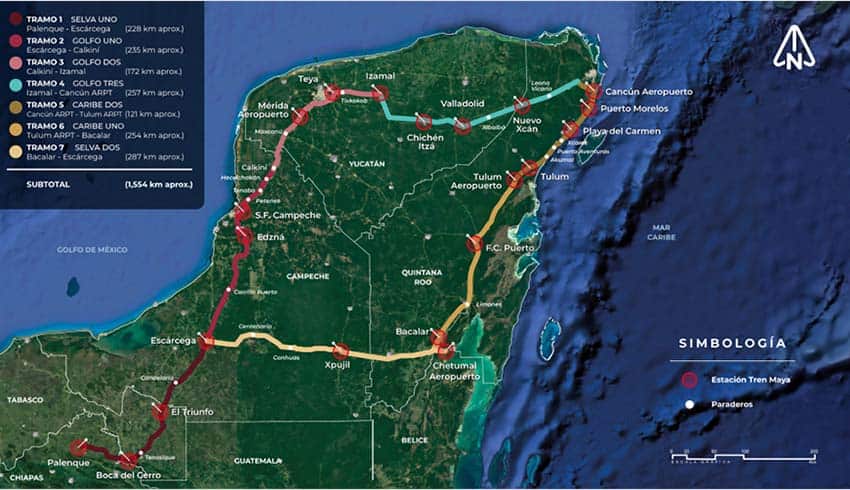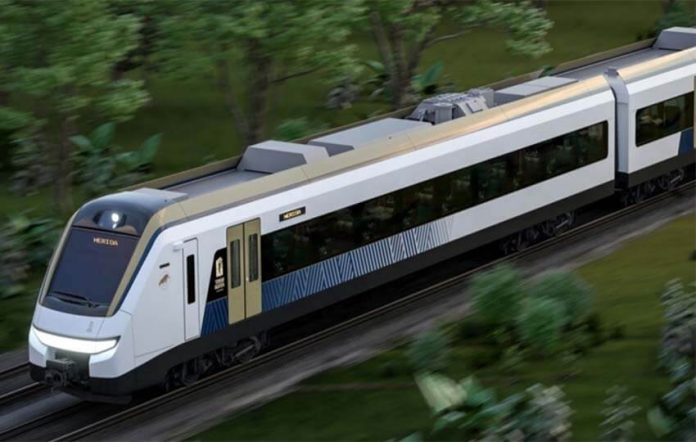The federal government will spend about 1 billion pesos (US $49 million) to buy land to reroute the Maya Train railroad between Playa del Carmen and Tulum, according to an estimate by the director of the National Tourism Promotion Fund (Fonatur).
President López Obrador announced Wednesday that the route would be modified in the Riviera Maya region of Quintana Roo.
Construction of tracks between the northbound and southbound lanes of Federal Highway 307 began last month despite opposition from hoteliers and members of the broader business community, who argued that the railroad would have an adverse impact on the highway and the vehicles that use it, especially as it was being built.
Fonatur chief Rogelio Jiménez Pons, whose agency is managing the project, said in interviews with the newspaper Reforma and Milenio Television that the Playa del Carmen-Tulum section of the railroad would now be built on the western, or inland, side of the highway, meaning that it will be farther away from beachfront hotels.
He said the government intends to purchase properties along a 43-kilometer stretch of land between the two coastal destinations. A lot of the properties required for the new right of way are owned by hoteliers who have expressed their support for the rerouting of the railroad and are willing to sell, Jiménez said.

While purchasing the land will cost around 1 billion pesos, the rerouting will generate savings of up to 5 billion pesos because fewer complementary projects will be required, he said.
“We will no longer have to go around moving [utility] poles … or replacing roads,” Jiménez said, adding that such work would have affected the flow of traffic on Highway 307.
The tracks, which will run at ground level apart from one elevated section in Playa del Carmen, will be far from hotels that overlook the Caribbean Sea, he stressed. “And that’s what the hoteliers want,” the Fonatur director told Reforma.
“… We reached a good consensus with the hoteliers,” Jiménez said in a separate interview with Milenio Television. “This situation obviously suits them, and it suits us as well because we’ll save on complementary work.”
He said the US $8-billion, 1,500-kilometer railroad — which will have more than 30 stations in Tabasco, Campeche, Yucatán, Quintana Roo and Chiapas — is already 30% complete and on track to begin operations at the end of 2023.
